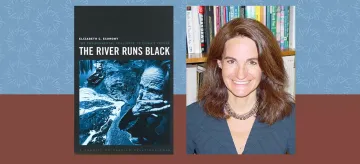Search 174 results
- Remove filter: Climate & Energy
- Remove filter: Economics
Filter by
Events
Series
- Students will learn about methods being used to address climate change such as the use of AI as well as the Inflation Reduction Act.

Learn how the world can lower greenhouse gas emissions and reduce the threat from climate change.

In this book, CFR Senior Fellow Elizabeth C. Economy uses historical research, case studies, and interviews with officials, scholars, and activists in China to provide insightful analysis of the economic and political roots of China’s environmental challenge as well as the evolution of the leadership’s response. Teaching notes by the author.
- Students will analyze how trade can be used as part of foreign policy.
- Students will simulate trading under different kinds of trade rules and then reflect on the advantages and disadvantages of each set of rules.
- Students will examine free trade and how globalization factors into the production of common items like clothing.
- Students will write a letter providing a recommendation on where to manufacture an item along with the reasons behind their argument.
- Students will debate the use of various economic tools as part of achieving foreign policy goals in hypothetical situations.
- Students will understand what a trade deficit is as well as the impact they can have on countries.
- Students will debate the pros and cons of trade between the U.S. and China using the history of Chinese accession in the WTO as a lens.

In The Globalization Myth: Why Regions Matter, CFR Vice President, Deputy Director of Studies, and Nelson and David Rockefeller Senior Fellow for Latin America Studies Shannon K. O'Neil offers a powerful case for why regionalization, not globalization, has been the biggest economic trend of the last forty years.

Building a Resilient Tomorrow draws on international and national examples, some revealed for the first time, to provide an interdisciplinary narrative covering a range of climate resilience solutions.

In his new book, State Capitalism: How the Return of Statism is Transforming the World, Council on Foreign Relations Senior Fellow for Southeast Asia Joshua Kurlantzick analyzes the rise in state capitalism in developing nations, including China, Russia, Singapore, Thailand, Malaysia, Indonesia, Brazil, and South Africa, among other states. He defines state capitalism as situations in which governments control or exert significant influence over at least one-third of the largest corporations in a country.